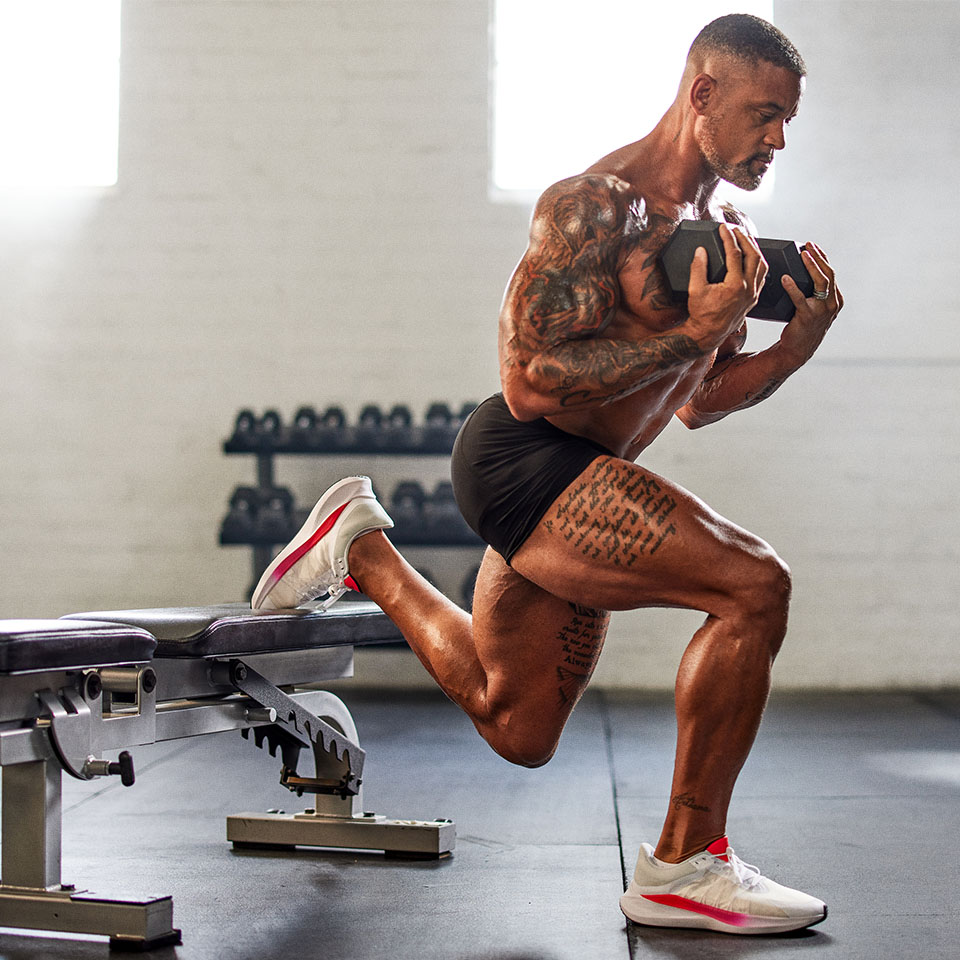Build Your Dream Physique With Body Recomposition Training

You’ve figured out the best way to lose weight for your body, and now you’ve finally hit your goal weight. But even though the number is right, you still might not look as fit and defined as you’d like to be. That’s where body recomposition training can help.
You’ve probably heard fitness influencers saying that the number on the scale often isn’t helpful, because it doesn’t take into account your body composition i.e., your ratio of lean mass (muscle, bone, etc.) to fat mass.
Body mass index (BMI) calculations, which estimate body fat based on height and weight, suffer from the same problem, says Jim White, RD, ACSM EX-P, owner of Jim White Fitness and Nutrition Studios in Virginia.
The solution: shifting your attention away from the scale, and focusing instead on body recomposition training.
What Is Body Recomposition?
Body recomposition focuses on changing how your body is composed, whether or not your scale weight changes as well.
“Say the weight on the scale is in the healthy range, but you’re still not happy with your body,” says White. “By using body recomposition, you can focus your efforts on adjusting how your body is composed to get the results you want.”
For most people, that means adding muscle while losing fat. Do it right, and you’ll look leaner and more “toned,” but you may also get stronger.
Who Uses Body Recomposition?

“Athletes and weightlifters have used body recomposition as an approach to perform better for many years,” says Morgan Rees, CPT, an independent personal trainer in Los Angeles. “[But] anyone who is also interested in losing overall body fat is a great candidate for this approach.”
White adds that it’s a way to get to know your unique body better and learn ways to adjust how your body looks over time. How you’d like your body to look probably differs from the next person — and that means cookie-cutter plans may not help you get to your “ideal” physique.
Anyone who wants “a better understanding about how they should train for individualized or personal preference physiques is a good candidate for body recomposition training,” he says.
How Does Body Recomposition Work?
“Instead of weight loss, you focus on what your body is composed of,” Rees says. But, again, your focus isn’t weight loss here, so some of the strategies may feel counterintuitive.
While focusing on body recomposition, you should:
- Ramp up resistance training to emphasize muscle growth.
- Adjust your daily calorie and nutrient intake to optimize both fat loss and muscle growth, the latter of which often entails that you consume around 1.2 to 2g protein per kilogram of body weight.
1. Muscle gain

Increasing your lean mass — especially with regards to muscle — is the primary goal of body recomposition training, and key to that process is the idea of progressive overload which requires you to regularly increase the demand on your muscles over time.
You can achieve that by lifting more weight, doing more reps or sets, reducing your rest between sets, and increasing your lifting tempo, to name a few options. Bottom line: challenge = growth.
BODi has an assortment of programs that can help you achieve your desired results, including:
- Dig Deeper: Shaun T’s first-ever weightlifting program focuses specifically on body recomposition with fat-torching, muscle-building workouts that’ll help reveal a leaner, more toned body.
- Just Bring Your Body: Four elite trainers lead you through 30-minute workouts that help you get shredded without equipment.
Training frequency is also important; you’ll want to strength train at least three times per week — targeting your entire body each time — to optimize your results.
Your diet is the other side of the muscle-growth equation. You’ll need to eat enough calories, and especially enough protein — between 1.2 and 2 grams per kilogram of body weight per day — to help your muscles recover and grow effectively.
2. Fat loss

Unlike other plans, which cut calories to reduce body weight, calorie-cutting isn’t the main focus of body recomposition training.
Fat loss will come primarily from eating more healthfully, working out regularly, and the adaptation process (muscle growth) that happens as a result.
Slight calorie cutting is an option, but it should never be done to an extent that it inhibits muscle growth.
Do I Need Supplements for This?
You likely don’t “need” supplements to achieve your body recomposition goals, but they can definitely help to accelerate your progress.
“Taking a pre-workout supplement can help boost your workout performance, and consuming a post-workout protein shake can help optimize your recovery,” says Trevor Thieme, C.S.C.S. “Together, that can fast track your results.”
But supplements will never make up for a poor diet. To achieve your body recomposition goals, you also need to upgrade your eating habits.
